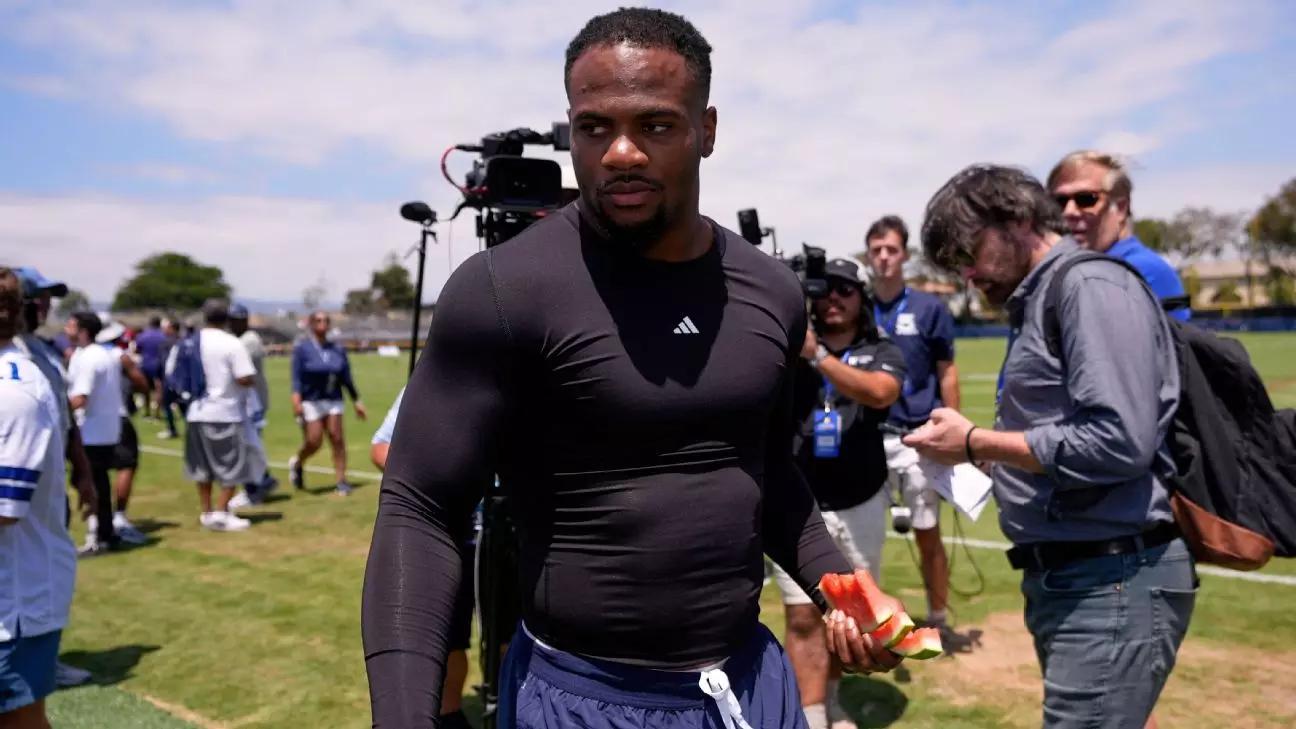In the high-stakes world of professional football, negotiations for player contracts rarely unfold smoothly, especially when dealing with franchise cornerstones like Micah Parsons. The Dallas Cowboys’ ownership, led by the audacious and highly influential Jerry Jones, demonstrates an approach that combines aggressive financial commitments with a strategic stance that emphasizes star power. Jones claims to have offered Parsons the most lucrative guaranteed contract for a defensive player in league history, a testament to the value the franchise places on its top talent. Yet, underlying this confidence is a complex dance involving agent negotiations, personal ambitions, and broader team strategy.
Jones’s public declaration of having made “the highest guaranteed deal” signals a desire to showcase the Cowboys’ willingness to invest in their emerging stars. From his perspective, Parsons’s potential is so substantial that withholding a competitive offer would be a disservice to both the player and the team’s future. This underscores a broader belief in building through star power — that aligning with a player of Parsons’s caliber can define not only team success but also franchise legacy. The narrative that Jones pushes is one of unwavering commitment, portraying the owner as a benefactor willing to break league records for guaranteed money to keep his young star happy and motivated.
However, the way negotiations have been publicly handled exposes the underlying tensions that often simmer beneath such displays of confidence. Jones attributes the stall to Parsons’s agent, David Mulugheta, suggesting an adversarial dynamic where the agent’s resistance is seen as an obstacle rather than a part of the natural negotiation process. His blunt remarks—calling the agent’s response “stick it up our ass”—are revealing not just of frustration, but of a strategy to shift blame and maintain the narrative that the team has gone above and beyond in its financial offer. Such rhetoric risks alienating players and agents alike and could impact future negotiations, not just with Parsons but with other star players.
Despite these tensions, Jones emphasizes flexibility—pointing to the franchise tag, the fifth-year option, and future franchise tags—as tools to manage player contracts if an immediate deal cannot be agreed upon. His comparison to Dak Prescott’s contract offers a glimpse into his negotiating philosophy: that patience, persistence, and a readiness to escalate to franchise tags if necessary can ultimately lead to decisive contracts that satisfy both parties. But in doing so, Jones also emphasizes the importance of control, asserting his authority over how and when the team’s financial commitments are finalized. The underlying message is clear: the Cowboys are willing to go to great lengths, including record-breaking guaranteed money, but ultimately, they want to dictate the pace and terms.
Jones’s public stance also highlights the evolving nature of NFL contracts. The league’s biggest non-quarterback guaranteed sum — held by Myles Garrett at $123.5 million — sets a benchmark that Jones claims to outmatch, reaffirming the Cowboys’ intent to elevate defensive stars’ pay to unprecedented levels. This move is as much about betting on Parsons’s future as it is about leverage; the team signals to the league and its fans that the Cowboys prioritize building around exceptional talent, and are prepared to pay premium prices to keep it.
Ultimately, this scenario exemplifies a broader ideological shift in the NFL: the recognition that star players are franchise-altering assets worth unprecedented investment. While Jones’s aggressive tactics might ruffle feathers in player-agent circles, they also serve as a clear message—Dallas is committed to securing its future by rewarding its top performers. Whether Parsons and his agent will accept such a lucrative offer or push for a different negotiation outcome remains to be seen, but the Cowboys’ approach reflects a bold, risk-taking philosophy that could redefine the landscape of player compensation in the league.

